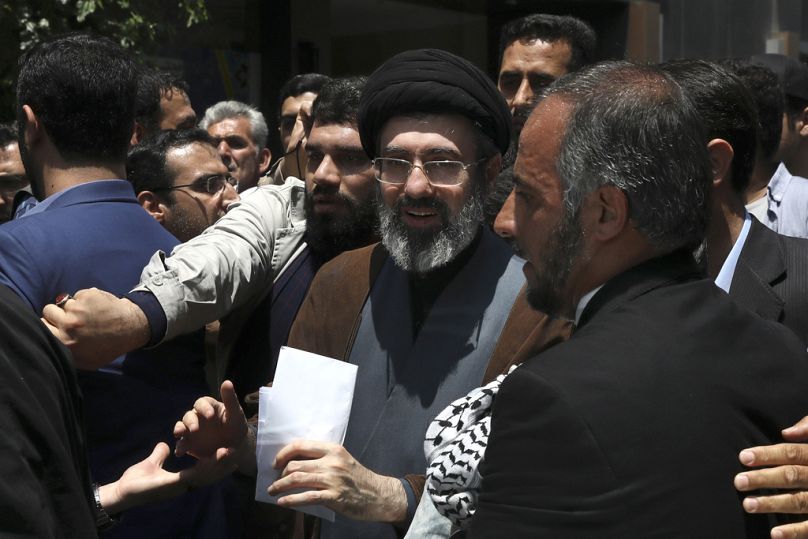Israel's military action against Iran has sparked discussions regarding the potential future leadership of the Islamic Republic and the question of who might take over as Supreme Leader should Ayatollah Ali Khamenei be killed.
Following the assassination of multiple high-ranking Iranian military officers and nuclear scientists, Israeli Prime Minister Benjamin Netanyahu has cautioned that Ayatollah Khamenei may be targeted next.
Khamenei has dismissed US demands for capitulation amid Israeli attacks and cautioned that any American military intervention would lead to “damage that cannot be undone.”
The US President Donald Trump mentioned earlier this week that they were aware of Khamenei’s whereabouts, stating “he is hiding somewhere,” yet he clarified that “we will not remove him from power...at least not for now.”
As tensions escalate nearly a week since Israel initiated an unexpected assault against its primary adversary, Iran, new information has surfaced about the increasing impact of Khamenei’s son, Mojtaba. There is speculation regarding his potential succession should Israel manage to eliminate him.
Mojtaba is considered an influential person within Iran’s decision-making spheres, even though he rarely appears before the public. According to inside sources who spoke to Reuters earlier, these connections remain strong due to his robust relationships with entities like the Islamic Revolutionary Guard Corps (IRGC) and key religious and political leaders based in Tehran.
Even though Khamenei hasn’t officially named a successor, experts believe Mojtaba is widely seen as a top contender for becoming Iran’s future supreme leader. Another potential candidate mentioned was former President Ebrahim Raisi, although he passed away in a helicopter accident in May.
Even though discussions highlight his significant sway, Iran’s Assembly of Experts — the body responsible for selecting the nation's upcoming supreme leader — reportedly omitted Mojtaba from a shortlist of possible contenders roughly half a year ago, as reported by Reuters.
Nevertheless, despite claims of waning popularity, insiders revealed that some prominent religious leaders were quietly campaigning to reinstate his name as an option.
The US and Israeli authorities had earlier expressed worries that the absence of agreement regarding Iran’s future Supreme Leader might make the transition period more difficult and potentially result in turmoil within the government, according to The Wall Street Journal report from last year.
Experts who follow Iran closely have indicated that Khamenei is against hereditary rule in a country where the US-supported monarchy was ousted in 1979.
Despite this, the intertwining of religious and military organizations in Iran, coupled with the opacity surrounding the selection of the upcoming Supreme Leader, implies that Mojtaba remains a possibility.

